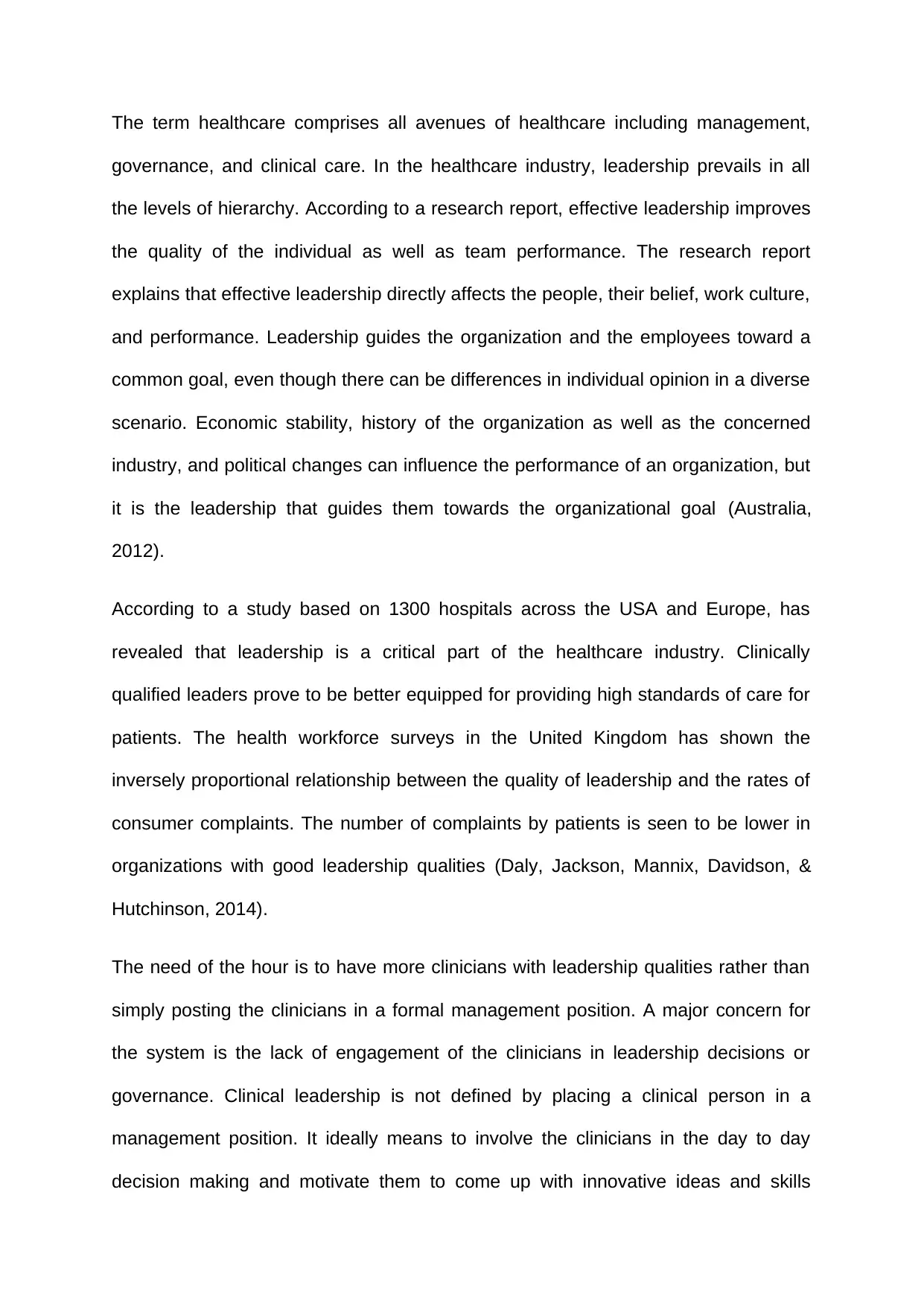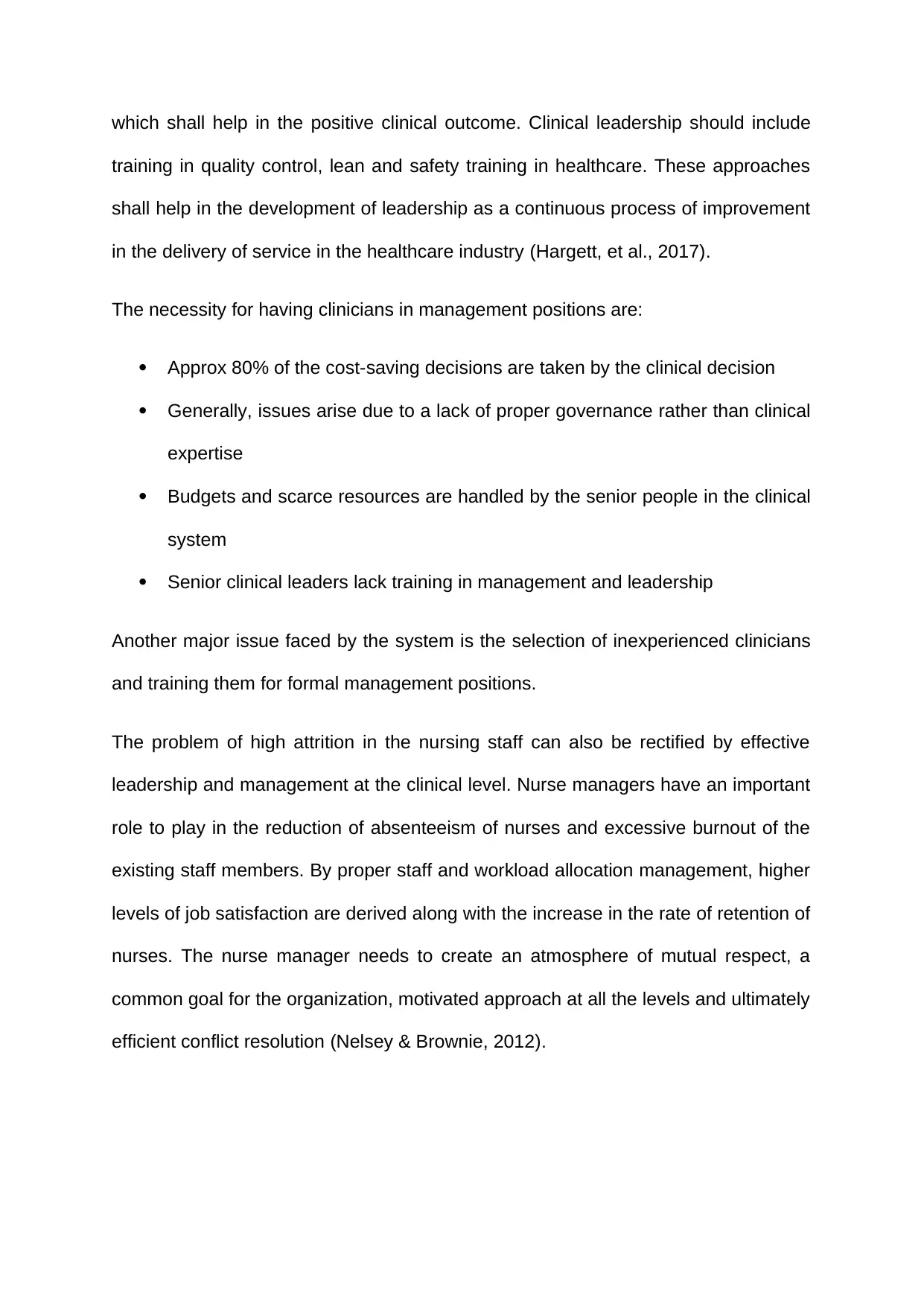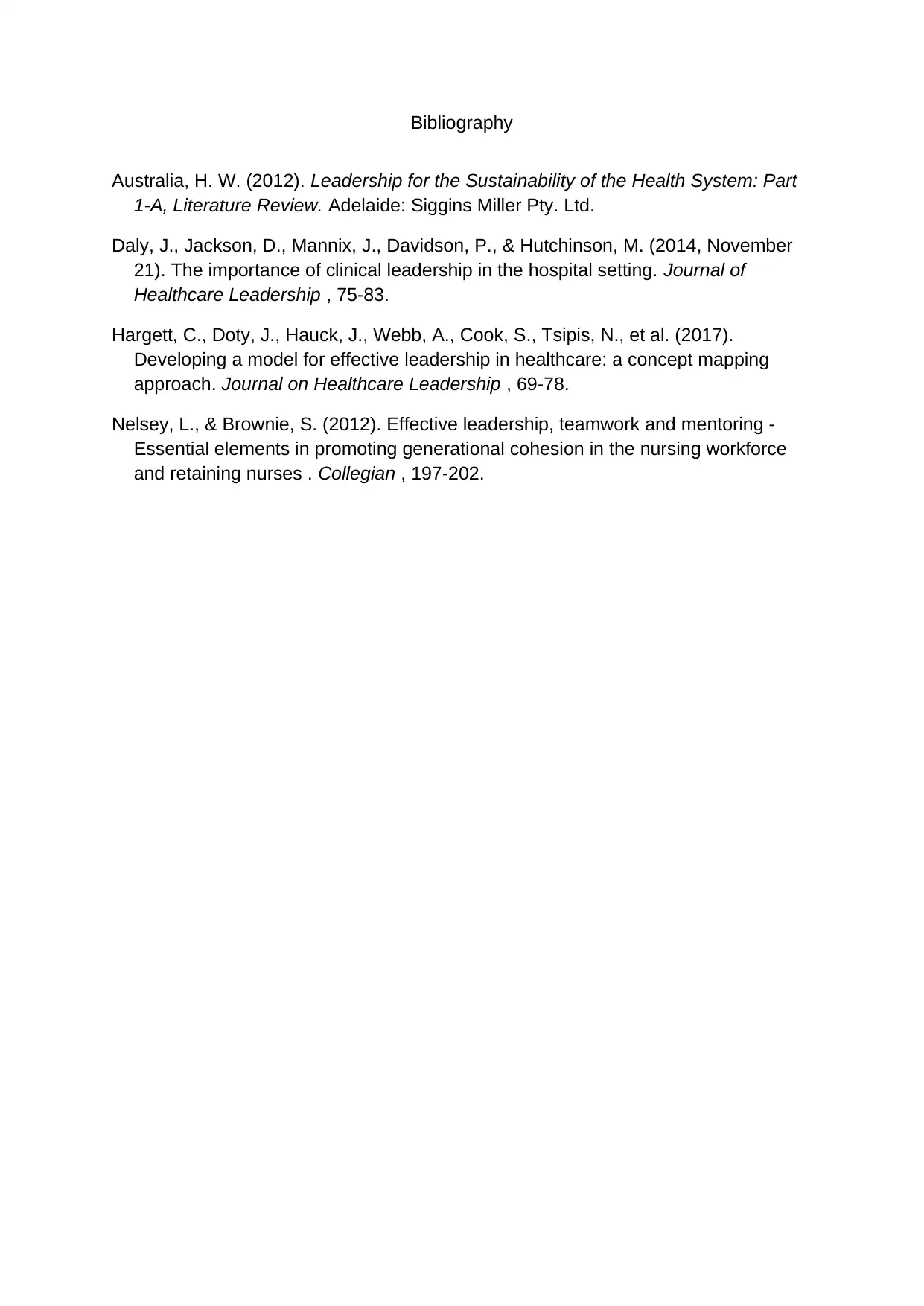Healthcare Leadership: Strategies for Improved Patient Outcomes
VerifiedAdded on 2023/03/17
|3
|747
|26
Report
AI Summary
This report delves into the multifaceted realm of healthcare leadership, emphasizing its crucial role in shaping clinical care, management, and overall governance within the healthcare industry. It highlights the significant influence of effective leadership on individual and team performance, organizational goals, and the fostering of a positive work culture. The report underscores the importance of clinical leadership, advocating for the involvement of clinicians in decision-making processes and the cultivation of innovative ideas to enhance clinical outcomes. It explores the necessity of training in quality control, lean methodologies, and safety protocols to establish leadership as a continuous improvement process. Furthermore, the report addresses the benefits of clinical leaders in management positions, including the management of budgets and resources, and the reduction of attrition among nursing staff through effective leadership and workload allocation. The provided bibliography includes several research papers and studies supporting the importance of effective leadership in healthcare.
1 out of 3









![[object Object]](/_next/static/media/star-bottom.7253800d.svg)